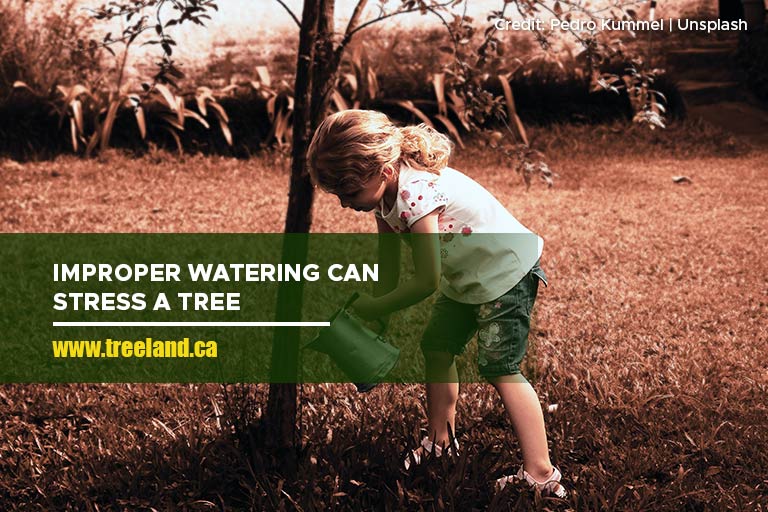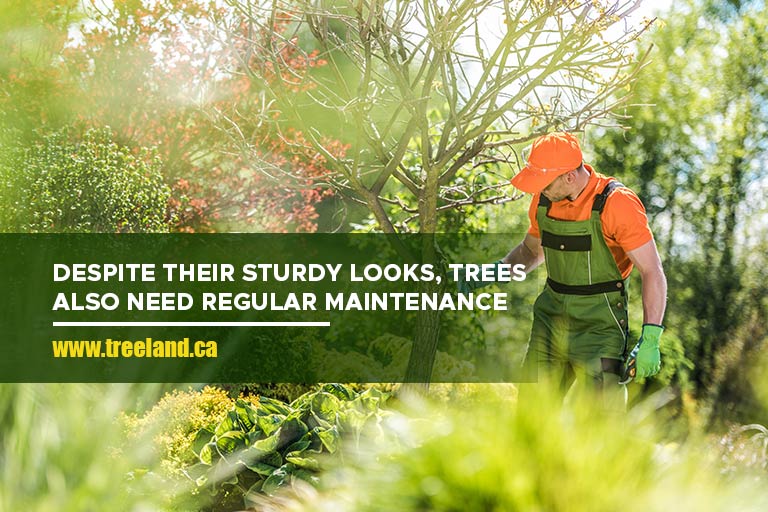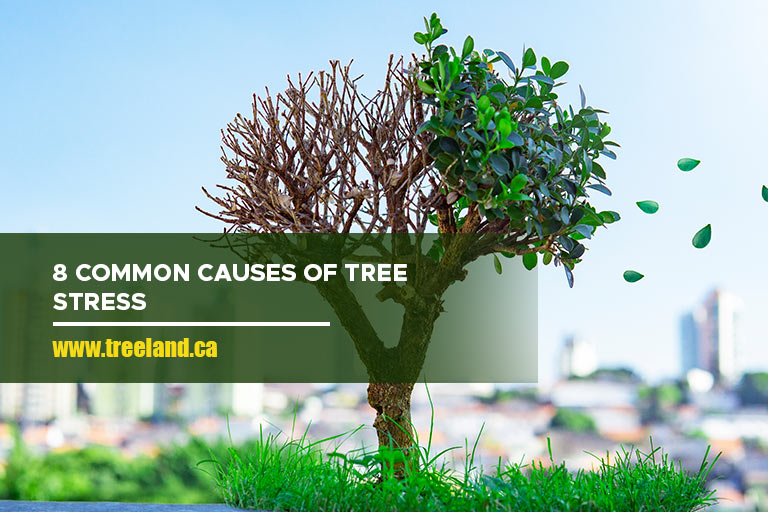Trees provide more than beauty and a natural ambiance. With their wide branches and foliage, they can give shade and fresh air for free. They can act as a sound barrier for passing cars and neighbourhood parties. Furthermore, privacy trees make it hard for nosy neighbours to sneak up and spy on you.
However, despite their tough exterior, trees are prone to injuries, stress, and diseases. Trees can be assailed by various uncontrollable variables, from pest infestations to sudden temperature changes.
As a homeowner, it is your job to keep the trees in your property safe and sound so they will be able to live longer without any issues. Any well-placed tree at a property will always be a good investment. Don’t let them fend for themselves and wither. Learn the main causes of tree stress and how you can prevent them:
- Improper pruning
Grooming the branches through pruning is an integral gardening step. This allows you to remove any sickly leaves and branches that may spread and infect other parts of the tree. Doing so can also reduce the number of pests that may wish to invade the vulnerable parts of the tree.
However, there is a proper time and technique for pruning. If you have a tree that prefers seasonal pruning, doing it monthly may cause them to wither as they’re unable to keep up with the constant cutting.
On the other hand, if you’re looking up evergreen trees for sale that stay lively and fresh throughout the year, you can be less restrictive when pruning them. If you’re unsure about how to go about this, make sure to consult an expert arborist for help.
- Insufficient protection leads to injuries
Doing construction renovations around your home can cause more than just noise pollution. Although an understandable project for any aspiring homeowner, house improvements that require heavy-duty equipment and machinery may unintentionally damage your lawn.
Sharp edges and parts may bruise and cut some trunks, while chemical fluids may leak into the soil and poison the roots. Soil health may also be compromised as they can be contaminated by heavy metal compounds from equipment.
When you’re thinking of conducting home renovations, make sure to cover your trees and the area surrounding them with protective layers to prevent extensive damage.
If you’re considering transferring your tree because you’re planning to build a major structure in your garden like a gazebo or pond, make sure to hire an expert in tree moving to ensure that your trees can thrive well after the transfer.
- Improper lawn management
A home’s lawn is a mini ecosystem in itself. For the shrubs, flowers, and shade trees to flourish, you have to maintain a biological equilibrium within the area. As the homeowner, managing your lawn will include careful planning of where to plant each specific plant species to prevent them from clashing with each other, and competing for nutrients.
Weeds should be controlled and regularly removed to prevent them from invading the soil surrounding your trees, which deprives them of nutrients. Trees should be given ample space from other plants to prevent any curling foliage that may be caused by depleting soil resources.
Plants of different species should also be planned carefully on whether they should be placed together or not or even beside your tree. For example, maple trees for sale should not be planted alongside aster, oriental bittersweet, field bindweed, honeysuckle, and hostas as they can suck out all the nutrients from the soil right away.
- Wrong watering technique

Due to their relatively gigantic size, trees are prone to overwatering. Since most homeowners might think that trees need as much water as possible, the soils surrounding trees tend to get muddy and too moist.
Having this much moisture could lead to fungus growth, which can damage the health of the tree. While under watering may also lead to withering due to a lack of nutrients. Make sure to research first the recommended watering technique for tree types.
- Incorrect mulching
Mulching your garden can result in numerous arboreal benefits for your trees and plants. Having them properly placed will prevent dehydration as it will conserve the water underneath the soil.
However improper mulching, which is using too much mulch material on tree surroundings, can cause the tree to wither and die. Make sure to put only 1 layer of mulch around trees to keep a balance between moisture build-up and water conservation.
- Improper planting
Planting adult trees in gardens can be a very risky ordeal. One wrong move, (be it with the soil type, method of transfer, and amount of water used), could lead to the tree’s death right away. To prevent this, make sure to hire an expert in tree installation so that your desired tree is well-situated and properly nourished.
- Poor protection from insects and diseases
The likelihood of pest infestations and disease on trees will vary greatly on the tree type. Some insects like the gypsy moth, spotted lanternfly, and emerald ash borer will tend to attack specific tree species.
Diseases such as oak wilt, hemlock woolly adelgid, and beech bark disease, may easily spread to other tree species as well. By conducting research regarding what diseases and pests your trees are most vulnerable to, you can better protect them or easily nurse them back to health if needed.
- Poor to no maintenance

Neglect is the main cause of stress and death among trees. If they are left alone to fend for themselves during any pest infestation or weed attack, they’ll just wither and die. As the homeowner, you have to be more attentive to what your trees need and provide it to them.
If you find yourself constantly searching for trees for sale in your area to replace your current dying ones, then you’re probably in need of some basic arboreal knowledge. It is important to remember the causes of tree stress.
This way, you’ll have a better idea of how to prevent and remedy them. Like us, trees can get stressed too when dealing when issues.
Beautify your lawn and protect your home from prying eyes with the privacy trees of Caledon Treeland. We have a wide selection of trees to choose from along with experts to advise you on the best ways to take care of your trees. Call us now at (905) 880-1828 to visit our family-run tree farm.

